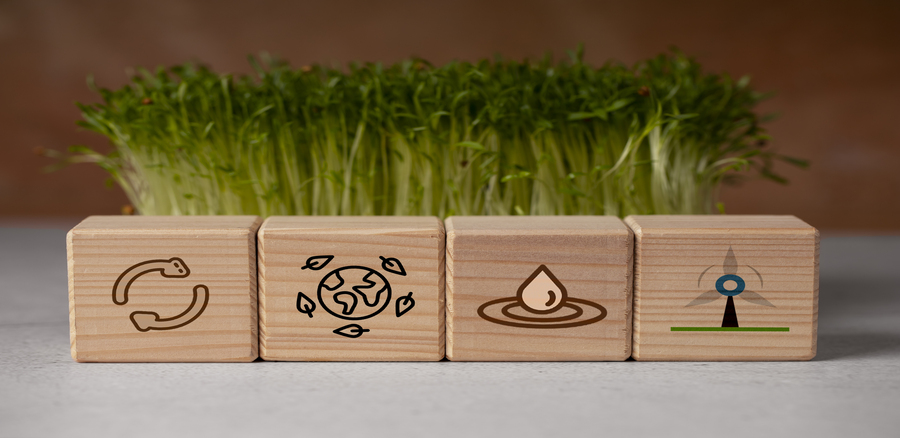Beyond Waste: Circular Economy’s Landscape of Sustainability
by Sovina Vijaykumar
In the face of escalating environmental crises fueled by our linear economic model, the time has come for a radical transformation. Our “take-make-dispose” approach leads to resource depletion, overwhelming waste, and unprecedented pollution. The need for change is undeniable, and on the horizon emerges the circular economy, a transformative framework inspired by nature’s closed-loop systems. In this exploration, we delve into the core principles of the circular economy, its real-world applications, and the pivotal role that businesses and individuals play in steering the course toward a more sustainable future.
From Linear to Circular: A Fundamental Change in Mindset:

The circular economy envisions designing products for longevity and resource efficiency, not merely consuming and discarding them. It challenges the status quo by redefining waste as a valuable resource and reintegrating it into the system through innovative strategies. Recycling and composting, reuse and repair, design for disassembly, and biomimicry are the cornerstones of this revolutionary approach.
In this circular paradigm, waste becomes an opportunity rather than a burden. Designing products with the end in mind, carefully selecting materials to enable multiple life cycles. The linear mindset is replaced with a regenerative one, echoing the cyclical patterns found in nature.
Circularity Works:
A 2019 Ellen MacArthur Foundation study indicates that adopting circular practices could reduce greenhouse gas emissions by 45% and generate 700 million new jobs globally by 2030.
- TerraCycle pioneers recycling “unrecyclables” like cigarette butts and coffee capsules, turning challenging waste streams into innovative opportunities.
- Mud Jeans, a Dutch denim brand, pioneers a lease-to-own model, reshaping consumer behavior and extending the life cycle of their products.
- Biohm, a UK company, offers edible seaweed packaging, addressing both plastic waste and food insecurity.
Businesses Leading the Way in Sustainability:
Acknowledging the potential for innovation, profitability, and a healthier planet, forward-thinking companies are embracing the circular economy:
- Unilever sets ambitious goals for using recycled plastics and reducing food waste, demonstrating the immense influence of consumer goods giants in driving change.
- Nike uses recycled materials and explores closed-loop footwear systems, showcasing the circular economy’s potential in the fashion industry.
- Philips leads in electronics with take-back programs and products designed for easy disassembly, setting a sustainability benchmark.
The Road Ahead: Embracing Circularity for a Sustainable Future:

Transitioning to a circular economy requires collective effort. Governments must incentivize sustainable practices through policy changes and regulations. Consumers play a crucial role by supporting businesses that embrace circularity and making informed choices. Companies, in turn, are pivotal in designing circular products, implementing resource recovery systems, and fostering innovation.
Together, we can shape a future where we relegate waste to the past, cherishing and preserving resources. The circular economy is not a fleeting trend but an essential pathway toward a more sustainable and prosperous world.
Conclusion:
In closing the loop on waste, we unravel a blueprint for a sustainable future. The circular economy is not a distant dream but an actionable reality, and it starts with each one of us making conscious choices. Circularity’s power lies in mitigating environmental challenges and creating a world where we minimize waste and endlessly renew resources.
In navigating sustainability, remember that even small changes contribute to the broader shift. The circular economy beckons and it’s time for us to answer the call. Let’s journey together towards a more circular and resilient future.